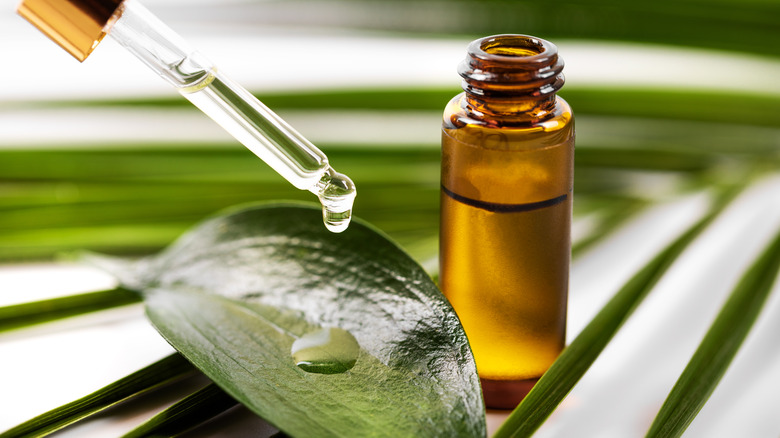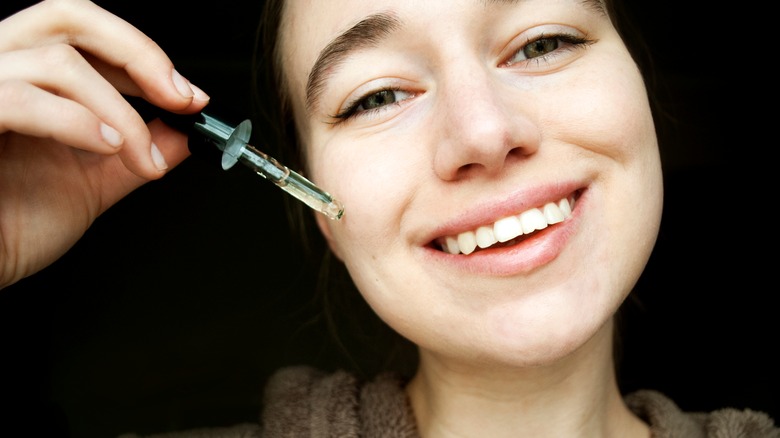Does Tea Tree Oil Help With Blackheads?
Tea tree oil is an essential oil that is extracted from the leaves of the Melaleuca alternifolia plant, which is native to Australia (via Verywell Health). Despite the name, tea tree oil is not a tea, but rather a type of medicine. Tea tree leaves and their oil have long been used for medicinal purposes and have a history of traditional use among aboriginal Australians, who used tea tree leaves to heal and disinfect cuts, burns, and infections by crushing them and applying them directly to the skin.
Tea tree oil contains antimicrobial and anti-inflammatory properties. These properties come from a number of chemical compounds found in the oil, including terpinen-4-ol, which is a major component of tea tree oil. According to Healthline, terpinen-4-ol can help increase white blood cell activity, which can help fight off potentially harmful germs and bacteria. This is what makes the oil an effective antiseptic and disinfectant.
Tea tree oil can treat acne
More recently, however, tea tree oil has been used to treat acne and blackheads — but does it actually work? While everyone's skin is different, tea tree oil is a proven and effective acne treatment. "Tea tree oil is the most common essential oil given its anti-inflammatory and antimicrobial properties," dermatologist Naissan O. Wesley told Byrdie. "Its benefits have been shown in some peer-reviewed studies to reduce total skin lesions when used for acne."
Tea tree oil's antimicrobial properties can also uniquely help fight off Propionibacterium acnes — a type of bacteria commonly associated with blackheads. Using tea tree oil is also a great way to cleanse your skin and unclog your pores, which can help reduce breakouts. Furthermore, the oil's anti-inflammatory properties can help relieve redness caused by acne and other types of blemishes and skin conditions (via mindbodygreen). For best use, mix in a couple drops of tree oil with your moisturizer and then apply this diluted oil to your skin.


